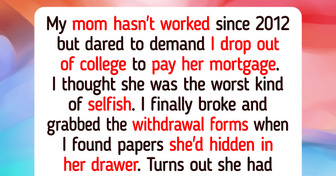Why can't vegans compromise. She wasn't asking you to eat meat. What do you care it's his house too.
I Banned Meat in My House, but My MIL Refused to Listen — So I Took a Stand
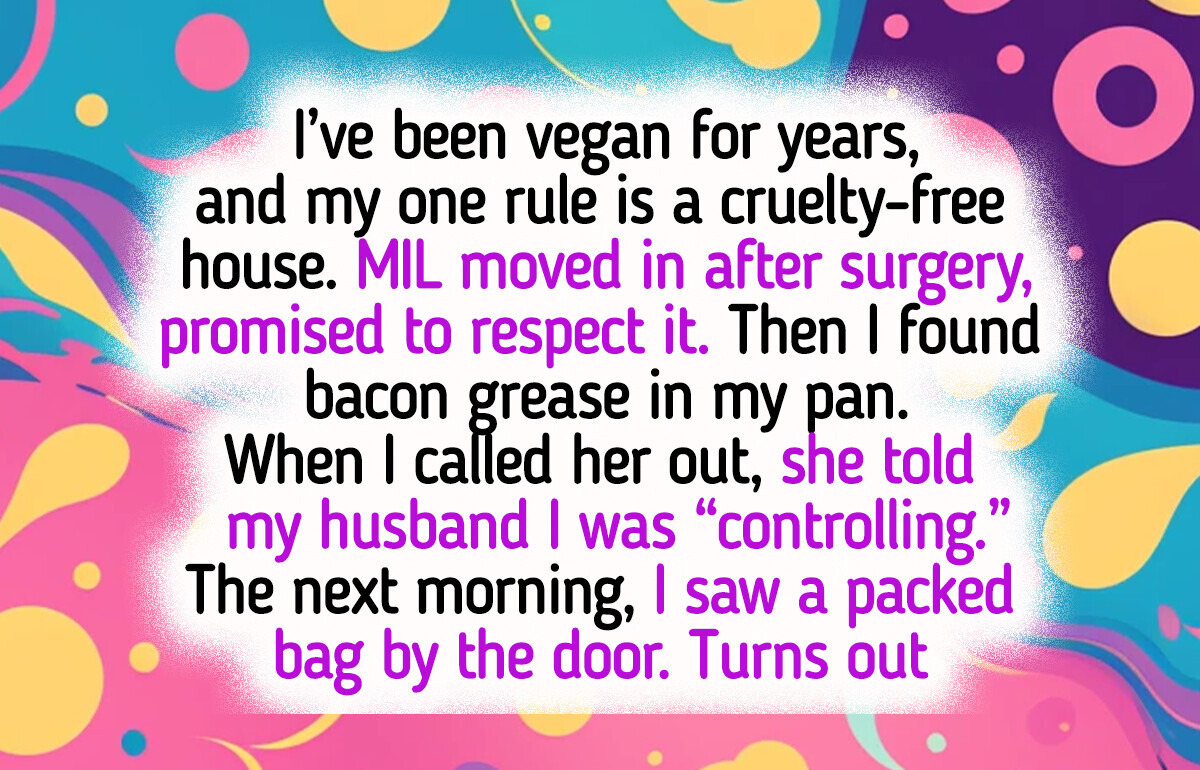
Everyone has house rules. Shoes off at the door, no smoking inside... and for some, no meat. But what happens when the family doesn’t take those rules seriously? One mother-in-law found out the hard way when her vegan daughter-in-law decided enough was enough.
The story of our reader Grace.
“Hi Bright Side,
I’ve been vegan for almost a decade, and one thing I’ve always been firm about is keeping my home cruelty-free. No meat, no dairy — it’s my safe space. When my mother-in-law came to stay with us after her hip replacement, I explained it kindly but clearly. She nodded and said, ‘I’ll respect that.’
Except she didn’t. A week later, I noticed a strong smell and found bacon grease in one of my pans. Another time, I opened the fridge and saw a half-empty carton of milk shoved behind my almond creamer. When I asked her about it, she laughed and said, ‘Relax, no one ever died from a little butter.’
But the real breaking point came when she hosted her sister in my dining room — and served steak she’d ordered in, using my plates and silverware. I was furious. I told her it was disrespectful. She turned to my husband and said, ‘See? This is what I mean. She’s trying to control me.’
Instead of backing me up, he sighed and told me I was ‘overreacting’ and ‘making his mom feel like a guest, not family.’ Then he told me maybe I should go stay with a friend if I ‘needed space to calm down.’
The next morning, I walked into the hallway and saw a packed overnight bag. At first, I thought she was finally leaving. But no — it was mine. My husband had packed it and set it by the door.
Now I’m sitting here wondering: am I really wrong for expecting my own boundaries to matter in my own home?”

Thank you for sharing your story — it’s clear that this situation has deeply affected your family. Whether or not you feel you were wrong, the emotional distance and conflict are now very real, and the challenge now is how to move forward thoughtfully and constructively. Here are four pieces of advice that could help you.
Admit that everyone including you can be wrong.

Owning up to mistakes can ease the tension, rebuild safety in a relationship, and open the door to healing.
On the other hand, refusing to admit fault often comes from pride, fear of embarrassment, or a stubborn need to be “right.” This only keeps conflicts alive and blocks real resolution.
Practicing intellectual humility — the ability to accept that we all have limits and can be wrong — actually deepens trust, strengthens bonds, and makes conflicts easier to solve with honesty and respect.
Recognize that shared spaces come with shared authority.

Have a calm, face-to-face talk. Instead of framing it as a power struggle, suggest working together on household expectations that reflect both of your values. It’s not about giving in — it’s about building a sense of partnership.
Draw a clear line between boundaries and control.
Saying “Don’t come here if you don’t follow my rules” might have felt like drawing a clear boundary, but to someone already living with you, it can come across as harsh or exclusionary. Choosing a vegan home is completely valid — but enforcing it as an absolute, especially when others are dealing with loyalty, grief, or identity, can easily create more conflict than cooperation.
Action step: Try creating compromise zones. For example: “No meat in the kitchen, but if you order something, please eat it where I don’t have to see it.” This way, you protect your values while giving them room to feel included, which often leads to more peace under the same roof.
Stop framing this as ‘I Did Nothing Wrong’ — and start asking what needs repair.

Well, she did agree to your conditions and within a week, without discussion, she violated the agreement. She is a guest in your home, not a permanent resident. She could have gone to a rehab type facility until her hip healed. I would request she replace the utensils and dinnerware etc that she used. I'm not vegan, my body requires animal protein to function (learned the hard way when I went one year without it and my health suffered); but everyone's body and philosophy is different. If she couldn't respect your house rule, she should have told you and moved out. Your husband may not agree with you, and if he has gone along with your house rule all these years, he should back you up. I would be upset
Holding onto “I did nothing wrong” may protect your pride for now, but it won’t heal the distance with your husband or MIL. Whether you agree with their reaction or not, the pain they feel is still real.
What to try: Reflect not only on the rule itself, but on how you delivered it. An apology doesn’t mean giving up your vegan values — it means saying, “I’m sorry my words made you feel unwelcome in your own home. That wasn’t my intention.” Sometimes, that small acknowledgment is enough to turn a locked door into one that can be opened again.
Despite all the tensions we might face, there is also a lot of kindness in the world.
Here are 15 Stories That Prove Kindness Runs in Some People’s Veins.
Comments
Lemme get this straight: it's your house, MIL agreed to respect your boundaries, proceeded to DISrespect you and your boundaries, and your husband's response is to pack *your* bags??!? WTAF??!? And the advice is that maybe you need to admit you were wrong?? What am I missing here?
I agree that if MIL wanted to eat how she preferred then she shouldn't have agreed to OPs rules. What was the point of lying about it?
Related Reads
I Refused to Help My Pregnant DIL—I’m Retired, Not a Free Babysitter
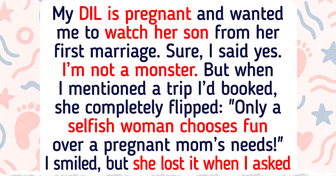
I Refuse to Leave Inheritance to My Kids Until They Follow These 3 Rules
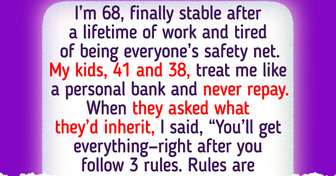
25 Stories Where Kindness Stood Like Armor in a Cruel World
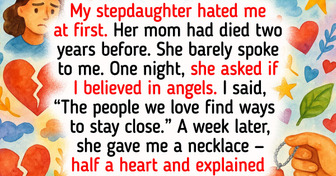
18 Moments That Remind Us Kindness Takes Minutes but Stays Forever

I Refuse to Be Treated as Less Reliable Because I’m a Single Mom
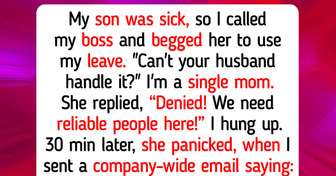
14 Stories From Cleaners That Are Wilder Than Any Movie Script
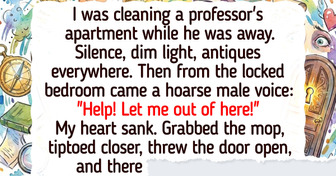
I Refused to Work While My Mom Was Dying—HR Got Involved
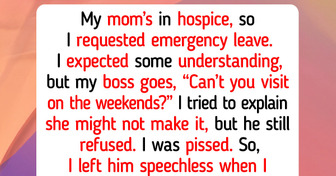
17 Moments That Prove Even Small Kindness Can Be Powerful

10 Jaw-Dropping Moments When People Stumbled Upon Secrets They Weren’t Meant to See

10 Moments That Show Kindness Doing the Heavy Lifting
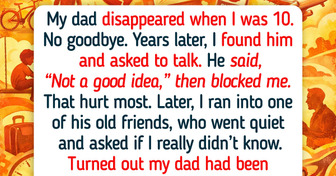
16 Moments That Teach Us to Stay Kind, Even When the World Turns Ugly
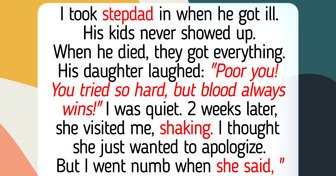
10+ Stories That Prove Quiet Kindness Is All Around Us, Even When No One Is Watching
